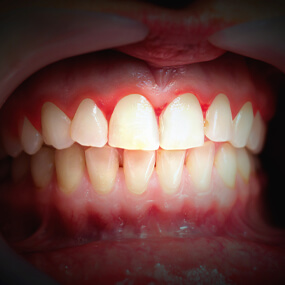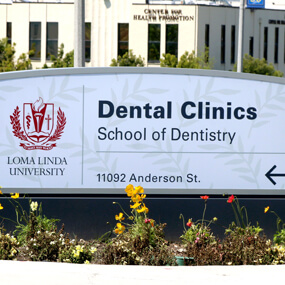How Your Gums Are Integral to Your Overall Health

Periodontitis is an infection of the soft tissues and bone that support your teeth, and it has long been recognized as the most prominent cause of tooth loss in adults. The damage periodontal disease causes is not limited to just your mouth, however. The inflammation can cause systemic problems and has been associated with diabetes, heart disease, dementia, and other degenerative diseases.
Your mouth is much more than just your teeth, gums, and tongue. There is a lot going on. In fact, your mouth is home to a complex network of bacteria. Different bacteria serve different purposes, and there is both “good” and “bad” bacteria. These bacteria compete, and when your mouth is healthy, your gums are protected from the bad bacteria that can inflame them. When an imbalance occurs, that bacteria can cause early-stage periodontal disease, which can further exacerbate the imbalance.
While bacteria initiates the gum disease, it is not the primary cause of the damage that results from it. The bacteria leads to inflammation, and it is that inflammation that does harm. In other words, the bacteria triggers a response from your own immune system. This response is white blood cells, and while those cells do destroy the offending bacteria, they also damage your gums.
Early periodontal disease is called gingivitis and is quite common. Symptoms can include gum redness and swelling, but a person can have gingivitis long before such symptoms manifest. Gingivitis will eventually evolve into advanced periodontitis, and while gingivitis is reversible, this more advanced type is not. It can only be managed in order to avoid eventual tooth loss.
Research has found that people with periodontal disease are often at greater risk of diabetes, heart disease, chronic respiratory disease, dementia, and even infertility and pregnancy complications. It is not yet understood if gum disease is itself the risk factor or these other ailments are making it more difficult to maintain healthy gums. Inflammation is key in all of these conditions, however, and the truth likely lies somewhere in the middle. Consider that treating gum disease can diminish the severity of diabetes, and likewise, treating diabetes can diminish the severity of gum disease.
How to Prevent Gum Disease
- Brush twice a day and floss daily. Clean your tongue with a toothbrush or a tongue scraper. After that, rinse with a therapeutic mouthwash. If you have implants, bridges, or gaps between your teeth, you may consider an interdental brush in addition to your standard toothbrush.
- Avoid tobacco products. Smokers are much more prone to gum disease. In fact, those who smoke half a pack a day are three times as likely, and those who smoke a pack a day are six times.
- Adjust your diet with oral health in mind. Limit sugars and acids that can lead to imbalances in the mouth. Incorporate foods that suppress inflammation: vegetables, legumes, nuts, fatty fish, and so forth. Fatty fish are a particularly good option because they contain omega-3 fatty acids, which have been linked to a reduced risk of gum disease.
- Visit your dentist on a regular basis. Your dentist or dental hygienist is essential to removing any plaque you missed and helping to ensure that plaque does not harden into tartar.
- Be proactive about gum disease. If your gums swell or bleed or look to be receding, those can all be serious signs of gum disease. Schedule a visit with your dentist right away. The earlier gum disease is diagnosed, the easier it is to treat and reverse.
Take Your Gum Health to the Next Level
Maintaining healthy gums is imperative not just to a beautiful smile but to good overall health throughout your life. While great gum health starts at home, your dentist can remove hard-to-reach plaque as well as diagnose potential problems with your gums and your health in general. Jeffrey D. Clark, DDS, and his entire team at Scottsdale Cosmetic Dentistry Excellence are here to help you win the battle against gum disease. Schedule your appointment today by calling 480 585 1853.




